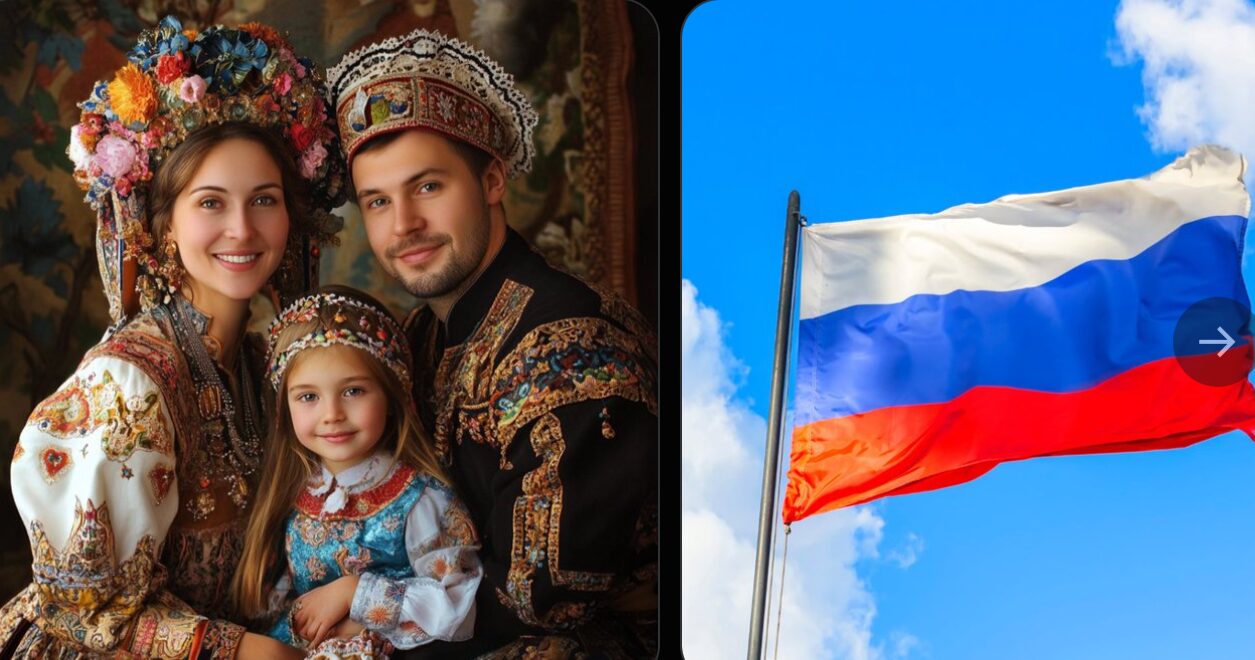RUSSIAN MP urges women to have babies “before 35 years old,” to lower risk of genetic disorders
Russian MP Urges Women to Have Babies “Before 35 Years Old” to Lower Risk of Genetic Disorders
In a statement that has sparked both support and controversy, a Russian Member of Parliament (MP) has urged women in the country to have children “before 35 years old” in order to reduce the risk of genetic disorders. This call to action comes as part of a broader discussion on Russia’s declining birth rate and the country’s struggle with demographic challenges. The MP’s comments, while grounded in concerns about public health and genetics, have raised questions about gender equality, the pressure placed on women, and the broader implications for Russian society.
The Statement: A Call to Action for Women’s Reproductive Health
The MP, whose identity has been widely reported, made the remark during a parliamentary session focused on addressing Russia’s demographic crisis. With Russia’s population steadily declining due to low birth rates and high mortality rates, particularly among working-age individuals, the government has been exploring various policies to encourage families to have more children.
In her speech, the MP emphasized that delaying childbirth beyond the age of 35 could increase the likelihood of genetic disorders and complications for both mothers and children. She pointed out that the risk of chromosomal abnormalities, such as Down syndrome, significantly increases for women over 35, based on scientific studies. By encouraging women to have children earlier, she argued, the nation could reduce these risks and ensure healthier births, while also addressing the country’s population problems.
The statement, which appeals to the notion of “biological clocks” and reproductive health, is part of a wider initiative by the Russian government to increase the birth rate. Over recent years, Russia’s fertility rate has fallen below the replacement level, prompting concerns about the aging population and the strain on the healthcare and pension systems. The Russian government has launched various incentives, including financial subsidies for families with multiple children and support for young parents, to combat these demographic issues.
The Broader Context: Russia’s Demographic Crisis
Russia has been grappling with a demographic crisis for several years. The country’s population has been in steady decline due to a combination of factors, including low birth rates, high mortality rates, and emigration. Between the 1990s and 2010s, Russia’s population dropped by millions, and although the country has seen some recovery in the past decade, the fertility rate remains far below the replacement level of 2.1 children per woman.
In response, the Russian government has introduced various policies to boost the birth rate. These include “motherhood capital” programs that provide financial incentives for families to have more children, tax breaks for families with children, and an increase in maternity leave benefits. Despite these efforts, the population continues to decline, and there is growing concern about the long-term economic implications of an aging population with fewer young workers to sustain the economy.
The declining birth rate is also linked to broader social and economic challenges, including the high cost of living, the instability of the job market, and the increasing difficulty of balancing family life with career demands. Many women, especially in urban areas, face challenges in finding affordable childcare, housing, and healthcare. As a result, many choose to delay having children or to have fewer children than they might have otherwise wanted.
The Debate: Gender Equality, Reproductive Rights, and Societal Pressures
The MP’s remarks have ignited a wider debate on the expectations placed on women in Russia regarding motherhood and reproductive choices. While the call to have children before 35 years old may be based on biological facts, critics argue that such statements place undue pressure on women to prioritize reproduction at a specific age, potentially at the expense of their personal and professional goals.
Some women’s rights advocates argue that statements like these contribute to a broader societal expectation that women should fulfill traditional roles as mothers, especially when it comes to raising a family. This perspective often fails to acknowledge the diverse aspirations and challenges faced by women today, such as pursuing higher education, advancing in careers, or contributing to society in ways other than through motherhood.
Additionally, while the MP’s statement is based on the belief that early childbirth can reduce the risk of genetic disorders, it overlooks the complexities of women’s reproductive choices. Many women today are delaying childbirth for a variety of reasons, including financial security, stable relationships, and personal readiness. While fertility declines with age, many women over 35 are still perfectly capable of having healthy pregnancies and children with the help of modern medicine and reproductive technologies.
Some have also pointed out that the MP’s comments could reinforce harmful stereotypes about women’s roles in society, diminishing the importance of gender equality and personal freedom in decision-making. In many parts of the world, including Russia, women continue to fight for the right to choose when to have children, based on their life circumstances, without facing societal judgment or governmental pressure.
Medical and Genetic Considerations
On the other hand, from a purely medical standpoint, the MP’s suggestion has some grounding in established scientific knowledge. The risk of genetic disorders, particularly chromosomal abnormalities like Down syndrome, does increase with maternal age. Women aged 35 and older are often classified as “advanced maternal age,” a designation that prompts additional monitoring and testing during pregnancy.
While the biological clock is a real factor for many women, advances in genetic screening and assisted reproductive technologies have significantly improved outcomes for older mothers. Non-invasive prenatal testing (NIPT) allows doctors to assess the risk of genetic disorders early in pregnancy, and assisted reproductive technologies like in vitro fertilization (IVF) offer greater chances for women over 35 to successfully conceive and have healthy pregnancies.
It is also important to note that a woman’s decision on when to have children is not solely based on the risk of genetic disorders. Societal, economic, and emotional factors play a significant role in shaping these decisions. Women often face difficult choices when balancing personal goals with the realities of raising children, especially when faced with limited support systems or challenging economic conditions.
Government Policy and Its Effect on Family Planning
In addition to pushing for earlier childbirth, Russia’s government has been implementing policies that aim to make childbearing more accessible to women. The government’s “motherhood capital” initiative, which provides financial support to families with children, is one example of these efforts. While these programs have been credited with increasing the birth rate in some regions, the issue of whether they are enough to counteract the broader demographic challenges remains uncertain.
The government’s role in family planning is a delicate one, as it must balance the encouragement of childbearing with the recognition of women’s autonomy over their reproductive choices. The recent comments by the MP indicate a potential shift toward more interventionist policies, where women are not only encouraged but urged to have children at a certain age, raising questions about the extent to which the government should influence personal decisions.
The Future Outlook: A Complex Issue
The question of how best to address Russia’s demographic decline is complex and multifaceted. While the MP’s comments about having children before 35 may reflect valid concerns about genetic risks, they also highlight the broader societal challenges that Russia faces in encouraging childbirth. There is no one-size-fits-all solution to these issues, and the role of government policies in shaping family decisions remains a topic of heated debate.
Ultimately, as Russia continues to confront its demographic crisis, the conversation must evolve to encompass the full range of factors that influence women’s reproductive choices. Policies that support women in having children at any age, rather than imposing strict timelines, may prove more effective in fostering a society where women are empowered to make the choices that are best for them and their families, without feeling pressured by societal or governmental expectations.
Conclusion: Finding a Balanced Approach
The MP’s urging of women to have children before 35 underscores the complex interplay between biology, society, and policy in Russia’s ongoing demographic challenges. While there is merit to understanding the biological factors related to childbirth, it is equally important to consider women’s autonomy and the broader social, economic, and cultural factors that influence reproductive choices. As Russia continues to navigate these issues, it will be essential for policies to reflect a balance that respects personal choice while addressing the country’s population concerns.

















Post Comment